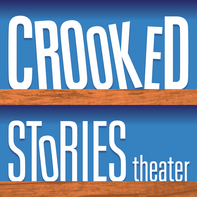Whatever It Takes (Reader’s cautioned. 9 pages in pdf format) by Paul Clarke
To escape imprisonment, Tom is willing to do whatever it takes…
Genius is one percent inspiration and ninety-nine percent perspiration. — Thomas A. Edison
True, Edison’s point was about the importance of hard work and perseverance, but the fact remains — one percent inspiration is essential. Especially for creative endeavors, inspiration can be the critical ingredient that makes all the difference – between the extraordinary and the mundane.
In Whatever It Takes, a short screenplay by Paul Clarke, protagonist Tom understands the importance of inspiration well. He’s a successful writer, hard at work on his latest novel. The reason Tom’s successful is that he lives (and dies) by Edison’s rule. When we first meet Tom, he’s locked in a dingy hotel room – writing hard enough to save his life; pouring ninety-nine percent perspiration onto the page.
Yet, Tom just can’t find that last little bit – the inspiration required to make his novel pop. But he’s willing to do whatever it takes to make it happen. How much?
We’ll soon find out.
For instance, Tom’s novel is set in a prison. So he gets down to role playing; hard core. From the get-go, he’s locked in his hotel room… barricaded from the outside. His agent has the key, there are bars on the window and Tom’s dressed in a prison jumpsuit – he hasn’t bathed in several days. A dedicated writer, he’s gone to great lengths to make it all seem real, including a primitive shiv hidden in his bed… not to mention, a make-shift noose.
Whatever it takes. So they say.
But even after a brush with death, Tom still can’t summon his muse.
Enter Katie (age 27), Tom’s girlfriend. And what a grand entrance she makes: “She rips the coat off revealing a Halloween-style slutty prison warden costume. Complete with thigh-high boots, and fishnet stockings.”
With a naked Katie, underneath. Which is when the story virtually explodes… into a funny, bawdy, high-energy romp, reminiscent of Spencer Tracy & Katherine Hepburn. Or Clark Gable & Claudette Colbert. Cary Grant & Rosalind Russell; any classic couple you can name. If they’d been making films in the twenty-first century, that is. And summoned the spirit of Mae West…
A masterpiece of set-up and pay-off, Whatever it Takes is a lot of fun. The first half? Suspenseful. The second is a riot and a great pay-off. Are you a director who likes intelligent raunch mixed with drama, not to mention a riveting tale? Then let Whatever It Takes inspire you. Put in the perspiration to do this right, and it’ll be a film festival favorite!
Budget: Fairly low.
About the writer: Paul Clarke is an Australian based screenwriter who works as a cinema manager by day and paid coverage writer by night. His success so far has included a top 10 place in the Writer’s Store Industry Insider competition. And is currently working on a selection of short, feature, and pilot scripts. He can be reached at paul.clarke.scripts “AT” gmail
About the reviewer: Helen Magellan (a pseudonym) is a successful screenwriter with several produced short scripts under her belt.
Read Whatever It Takes (pdf format)
Find more scripts available for production
This screenplay may not be used or reproduced for any purpose including educational purposes without the expressed written permission of the author.





